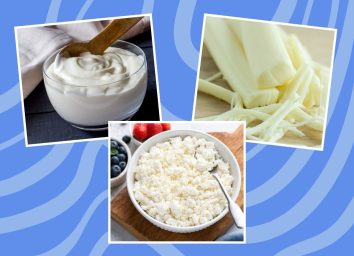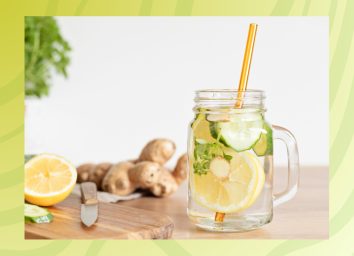This Nutrient Found In Soda and Coffee Can Cause Kidney Stones

You're plenty familiar with the term "nutrients," but have you heard of their alter ego? The concept of anti-nutrients isn't as well known nor is it discussed often. However, one public health nutrition researcher points out that some are not as evil as they sound—except for one that's most commonly found in coffee and also some sodas.
In a recent article published in The Conversation, Jill Joyce—an assistant professor of public health nutrition at Oklahoma State University—explains that anti-nutrients are found in both plant and animal foods. They're referred to as anti-nutrients because of their main function: They inhibit other nutrients from being absorbed by the body. (Related: The One Vitamin Doctors Are Urging Everyone to Take Right Now.)
Let's say you ate a kale salad with sliced beets on top for lunch. Dark leafy greens, such as kale are rich in calcium, while beets contain an anti-nutrient called oxalate. To be clear, both kale and beets boast a lot of other vitamins and minerals. We're only interested in these two foods for this example.
Oxalates are one of the few anti-nutrients associated with negative impacts on the body. What do they do? Essentially, they bind to calcium in the digestive tracts and effectively remove it from the body. So, depending on how many oxalates you get in your diet, all of that calcium from the kale that's now sitting in your gut may not be absorbed into your bloodstream—aka where it's needed for your body to use it and reap its health benefits.
Beets aren't just the only food that has oxalates. In fact, the anti-nutrient is found in many foods and beverages you probably consume on a regular basis, including cranberries and other berries, legumes, oranges, sweet potatoes, and—you guessed it—coffee and soda. Another side effect of oxalates? They can increase the risk of kidney stones in certain individuals if consumed in excess.
Of course, there's a big emphasis on "eating in excess" here. As Joyce points out in the article, "studies show that anti-nutrients are not of concern unless consumed in ultra, unrealistically high amounts—and they have numerous health benefits."
With the exception of oxalates, Joyce argues that the pros of anti-nutrients actually outweigh the cons, because a majority are sourced from fruits, legumes, and whole grains—all of which you should be encouraged to eat regularly.
So, should you remove coffee and soda from your diet entirely because of this anti-nutrient? Well, we would recommend cutting soda from your diet for other reasons (cough, cough, added sugars). As far as coffee goes, just make sure to not over-do it, and drink plenty of water to help prevent kidney stones.
For more tips, check out 25 Healthy, Low-Sugar Soda Alternatives and 8 Healthiest Ways to Drink Your Coffee, According to Dietitians.








